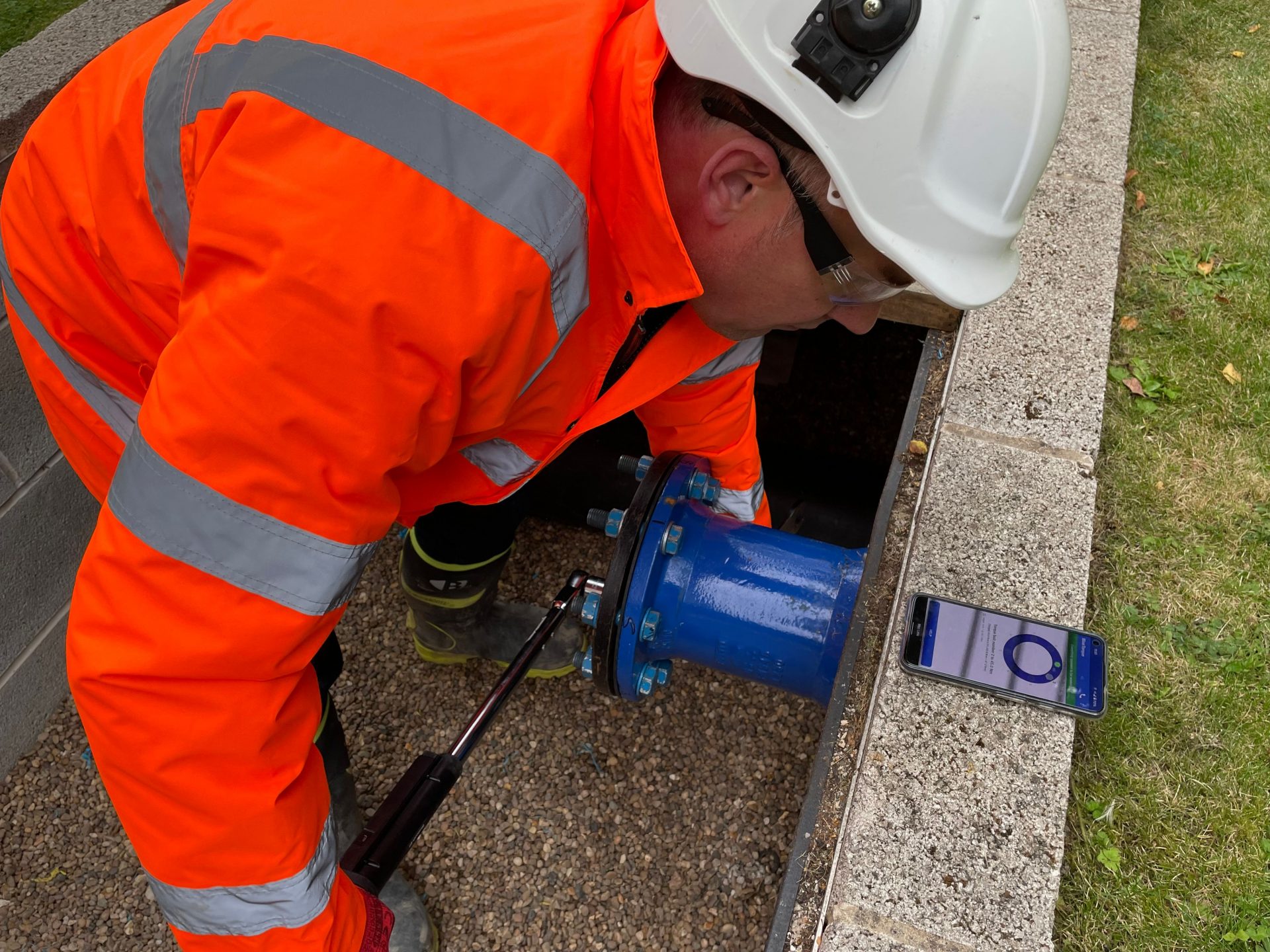The UK water sector is making significant progress in reducing leakage, but a data-led approach on flange and joint assemblies, combined with workforce training, can still deliver significant gains, writes Ben Crabtree, product line manager, ControlPoint at Ovarro.
Completion of new water main installations is dependent on the pressure test to prove the pipe is watertight – but up to 30 per cent of new pipelines fail their first pressure test, mostly due to weeps and leaks on mechanical joints and flanges. A new quality-assurance solution from Ovarro is demonstrating how data capture can support practical, on-the-ground tasks – in this case flange and mechanical joint assemblies using a torque wrench.
Digital data-led technology is transforming leakage management, with 13 water companies in England and Wales achieving their 2020-2021 performance targets. Maintaining momentum is one of the industry’s top priorities, as it continues its drive to cut leakage by at least 15% by 2025.
In England, the Water UK Public Interest Commitment pledges to triple the rates of leakage reduction by 2030, while UK Water Industry Research (UKWIR) is exploring how the UK can achieve zero leakage by 2050.
Innovative approaches are key to the delivery of these unprecedented goals. As such, Ovarro has worked closely with several UK water utilities to develop game-changing remote leak detection technology, with a strong focus on data capture.
The technology to gather more and more data from water supply and distribution networks is becoming widely available, but Ovarro’s engineers see a reoccurring theme among utilities – of being data-rich, information poor. Data capture is only part of the story – its full power can only be realised by upskilling staff and embedding the correct tools to turn that data into useful information.
TorqueAssist is a digital tool that captures installation data from Bluetooth-enabled torques, including gasket and bolt types, along with inputs on location and weather. Using a handheld device, technical operatives are asked a series of questions to guide them through the tightening process, providing instant, tangible records.
The captured data provides evidence of compliance, as well as key efficiency data to monitor the future needs of the infrastructure. All data is collated on Ovarro’s cloud-based JointManager platform.
The technology was developed using feedback from the whole supply chain – gasket manufacturers, torque wrench manufacturers and end-users, who highlighted the need for a standardised approach to pipe assembly in the field. These conversations also revealed the need for flange installation training, which is offered alongside the digital product.
The training programme is endorsed by the Energy & Utility Skills Register (EUSR) and aims to improve knowledge of flange assembly, driving onsite best practice and quality assurance, all supported by TorqueAssist. While training is aimed at contractors, it is in the utilities’ interest to specify tighter control over flange installations, which are a significant cause of leakage.
To maintain its current leak reduction success and deliver for customers and the environment, the water sector and its suppliers must work in partnership to build the multi-skilled workforce they need. By combining the roll-out of new data-led technology with practical, on-the-ground training, Ovarro is proud to be playing its part to create a resilient, futureproof water network and workforce.
Ovarro completed the acquisition of ControlPoint, a key supplier of digital quality assurance and data management solutions to UK water utilities, in March 2021.



